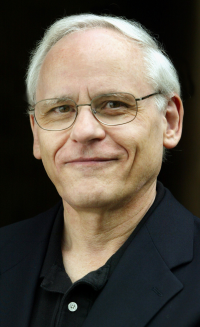Robert Wuthnow is the Gerhard Andlinger Professor of Social Sciences and Director of the Center for the Study of American Religion at Princeton University. Wuthnow is widely published in the areas of sociology of religion, culture and civil society. His recent books include After the Baby Boomers: How Twenty-and Thirty-Somethings Are Shaping the Future of American Religion (my review) and Boundless Faith: The Global Influence of American Churches (my review). For more information visit his Princeton faculty page.
Book Basics
America is a nation with both unusually high levels of educational attainment and unusually high levels of religious belief and behavior. The God Problem considers religion as people experience it, relying heavily on common threads from 165 interviews conducted in 2006-2007 that show how “well-educated, thoughtful Americans have found a way of having their cake and eating it too: affirming their faith while also maintaining their belief in reason” (p.3). Wuthnow’s approach relies on the earlier work done by many scholars and through popular surveys to measure religion, while also seeking to move toward new clarity through analysis of how people use language to overcome that which he terms the God problem – a seemingly paradoxical relationship between faith and reason. For example, in a chapter on prayer Wuthnow explains how six language devices – schema alignment, ontological assertion, contingency referents, domain juxtaposition, code switching, and performative competence – enable thoughtful people to pray without being drawn into deep theological considerations about the nature of the divine.
The rich, complex, and nuanced language currently used by Americans shapes how religion is viewed as reasonable to well-educated global citizens in an increasingly post-modern world. Rather than attempting to construct philosophically sound and/or theological deep answers to the problem of theodicy (why a good and powerful God allows bad things to happen to good people) most people simply deny that the divine is involved in planning events humans consider to be big scary catastrophes, and functions more like a “CEO who keeps the universe under control but lets people make their own decisions for good or for ill” (p.143). In a similar manner, most religious people believe that heaven exists and is a wonderful place yet limit any attempts to further explain that reality by using provisional language that often relies heavily on biblical authority and through appropriate expressions of doubt and uncertainty. Other constructs allow people to emphasize the compatibility between science and faith and to affirm both Christian and American ideals of freedom.
So What?
Since the so-called God problem can be overcome with language, it is realistic to assume that it will continue to be possible for people to express their faith and be viewed as reasonable for the foreseeable future.
Do you consider your religious beliefs and behaviors to be reasonable? If so, how would you explain this to a curious observer who was unsure whether or not they should be categorized as reasonable or not?
Further Study
If you are planning to convene a virtual study group or book discussion forum focusing on The God Problem, I would welcome an invitation to participate. This book, like much of Wuthnow’s writing, is filled with insight worthy of further consideration.
Robert Wuthnow. The God Problem: Expressing Faith and Being Reasonable (University of California Press, 2012). ISBN: 9780520274280.
